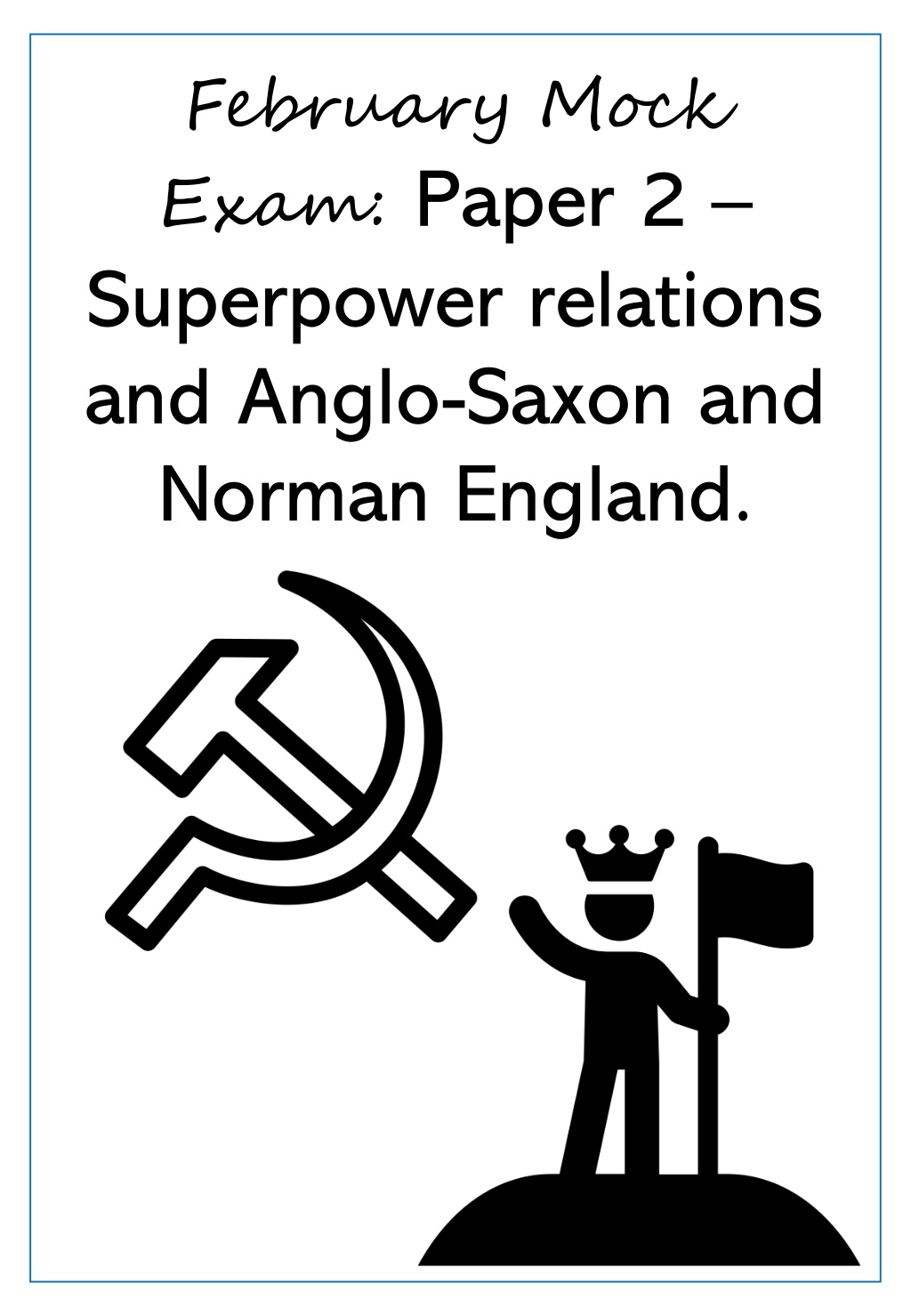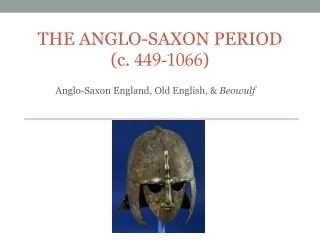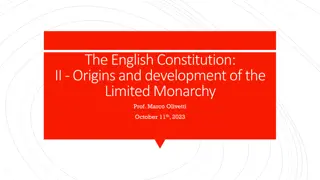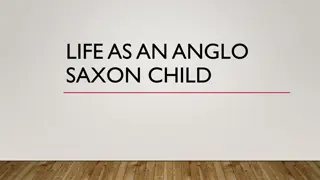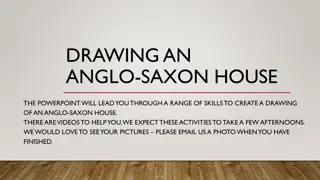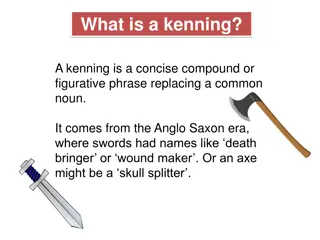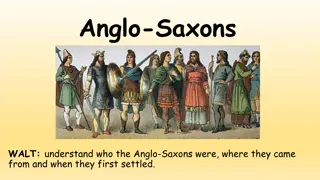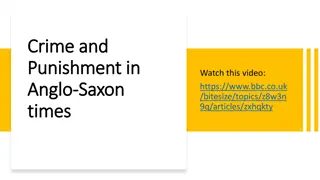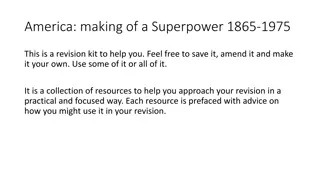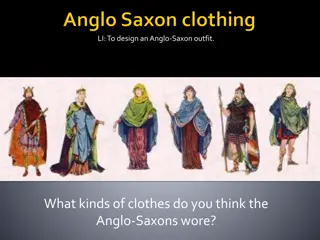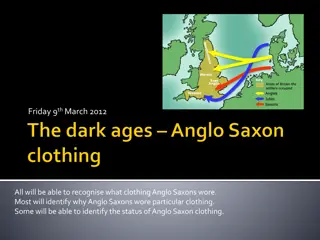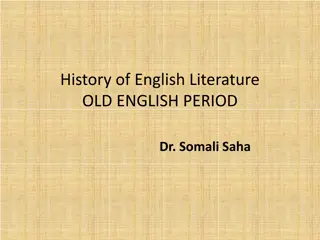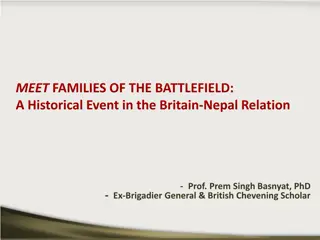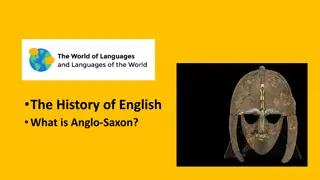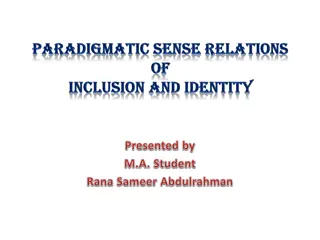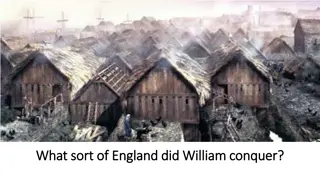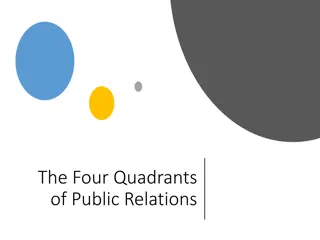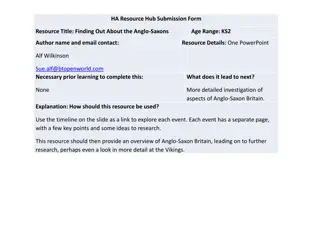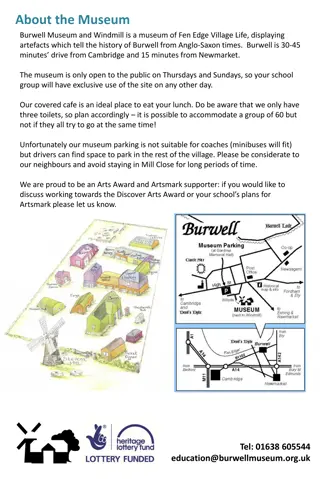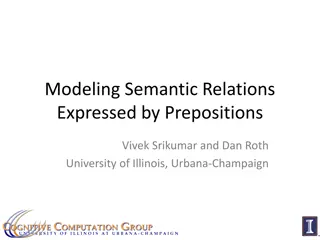Anglo-Saxon, Norman England, and Superpower Relations Study Plan
Year 11 homework schedule and revision plan covering topics such as Anglo-Saxon and Norman England, Superpower Relations, Cold War events, and key historical figures. Resources include BBC Bitesize, Seneca, and GCSEPod for comprehensive study material and quizzes.
Download Presentation

Please find below an Image/Link to download the presentation.
The content on the website is provided AS IS for your information and personal use only. It may not be sold, licensed, or shared on other websites without obtaining consent from the author. Download presentation by click this link. If you encounter any issues during the download, it is possible that the publisher has removed the file from their server.
E N D
Presentation Transcript
February Mock Exam: Paper 2 Superpower relations and Anglo-Saxon and Norman England.
Year 11 homework schedule Week Description Resources Pages 8 and 16 in the revision guide. Superpower Relations Week 1 BBC Bitesize: The Arms Race and the Space Race - The Cold War, 1948-1960 - OCR A - GCSE History Revision - OCR A - BBC Bitesize In this homework you will learn about the arms race between the Soviet Union and the USA. You will also learn about how the Brezhnev Doctrine impacted the power of the Soviet Union. The Prague Spring - The Cold War 1958-1970 - Edexcel - GCSE History Revision - Edexcel - BBC Bitesize Work your way through the resources and complete the quiz and brain dump on the above areas. Seneca: Seneca - Learn 2x Faster (senecalearning.com) GCSE Pod: GCSEPod (Arms race) GCSEPod (Brezhnev Doctrine) Pages 12 and 20 in the revision guide. Superpower Relations Week 2 BBC Bitesize: The Cuban Missile Crisis, 1962 - The Cold War 1958-1970 - Edexcel - GCSE History Revision - Edexcel - BBC Bitesize In this homework you will learn about the Bay of Pigs incident and how this impacted relations between the USA and the Soviet Union. You will also learn about the events of the D tente between 1970-4. D tente - The Cold War, 1961-1972 - AQA - GCSE History Revision - AQA - BBC Bitesize Seneca: Seneca - Learn 2x Faster (senecalearning.com) Work your way through the resources and complete the revision quilt and practise question. GCSE Pod: GCSEPod (Pay of Pigs), GCSEPod (D tente) Pages 28 in the revision guide. Superpower Relations Week 3 BBC Bitesize: The fall of the Berlin Wall - The end of the Cold War, 1985 91 - CCEA - GCSE History Revision - CCEA - BBC Bitesize In this homework you will learn about the fall of the Berlin wall. Work your way through the resources and complete the revision clock. Anglo-Saxons and Normans GCSE Pod: GCSEPod Revision guide page 3 (only small amount) and 6. Week 4 In this homework you will recap the structure of Anglo-Saxon society. You will also learn about the reasons why there was a succession crisis of 1066 in 1066. BBC Bitesize: Anglo-Saxon society pre-1066 - Edexcel - GCSE History - Edexcel - Audio - BBC Bitesize (Anglo-Saxon society) Claimants to the English throne in 1066 - Edward's death and claimants to the throne - OCR B - GCSE History Revision - OCR B - BBC Bitesize (succession crisis) Work your way through the resources and complete the worksheet (including exam question) and the 12 mark plan. GCSE Pod: GCSEPod (Society) GCSEPod (Succession) Revision guide page 8, 9 and 14. Anglo-Saxons and Normans Week 5 BBC Bitesize: The Harrying of the North - Revolt, resistance and control in Norman England - OCR B - GCSE History Revision - OCR B - BBC Bitesize In this homework you will recap the events of the Battle of Hastings, and the reasons why William won. You will also look at the consequences of the Harrying of the North. Why did William win the Battle of Hastings? - 1066 - the battles - AQA - GCSE History Revision - AQA - BBC Bitesize Work your way through the resources and complete the revision quilt and quiz. Finally, you should complete the exam wrapper which will allow you to reflect on your revision in the lead up to your mocks. GCSE Pod: GCSEPod (Hastings) GCSEPod (Harrying of the North)
Year 11 revision homework 1: Quiz Answer the questions on the sheet below: 1. Which country first had control over nuclear weapons? _________________________________________________ 2. In which year did the Soviet Union develop nuclear weapons? _________________________________________________ 3. How had nuclear weapons changed by the 1950s? _________________________________________________ _________________________________________________ _________________________________________________ 4. How did nuclear weapons prevent confrontation? _________________________________________________ _________________________________________________ _________________________________________________ 5. What was the Warsaw Pact? _________________________________________________ _________________________________________________ 6. Give 2 reasons why the Warsaw Pact was significant? 1.________________________________________________ _________________________________________________ 2.________________________________________________ _________________________________________________
Year 11 revision homework 1: Brain Dump Write everything that you know about the Brezhnev Doctrine impacted the power of the Soviet Union around the mind map (brain dump) that is centred in the middle of the page. E.g. In August 1968, the Soviet Union sent tanks to Prague and Dubcek.
Year 11 revision homework 2: Revision Quilt Read through the information below about the Bay of Pigs incident. You should categorise each box under one of the following headings: 1. Causes 2. Events 3. Consequences In April 1961, just after he was installed as President of the USA, John F Kennedy approved a plan to invade Cuba and overthrow communism. Cuba had a socialist revolution in in 1959. America had previously worked very closely with Cuba and refused to accept this new government. The lack of air support meant the rebels were easily defeated when they were met by 20,000 heavily armed Cuban troops. All were captured or killed. This ended all chances of a friendly USA Cuba relationship. Kennedy now looked weak and aggressive at the same time. This makes him much less likely to back down in future. Cuba started to deal with the Soviet Union buying Soviet oil and selling Cuban sugar. The USA resented this alliance. The CIA had tried to assassinate the new leader of Cuba, Fidel Castro, but had failed. The CIA landed 1,400 Cuban exiles at the Bay of Pigs on the southern coast of Cuba with the aim of provoking an anti- communist uprising. Castro announced that he was a communist. Almost at the last minute, Kennedy cancelled an order that had promised the Cuban resistance US Air Force support for their coup d et. Cuba and the Soviet Union started building closer ties including military defence for Cuba. The US imposed a trade embargo on Cuban goods, depriving Cubans of a market for their sugar and tobacco and the income to import oil and other essential goods. Task 2: Can you identify 2 consequences of the Bay of Pigs incident and explain why they are important in affected the relationship between Cuba and the USA.
Year 11 revision homework 2: Exam practise Explain two consequences of the D tente in the 1970 s. In your answer you may include: - SALT 1 - 1975 Helsinki Conference Read through the exam-le below to see what this could look like: One consequence of the D tente superpowers agreed to limit the number of nuclear weapons they had. Prior to the D tente, superpowers such as the USA and the Soviet Union had been involved in an arms race, in which both countries had fought to produce nuclear weapons with bigger warheads and missile delivery systems. However, during the D tente, major superpowers agreed to the Strategic Arms Limitation Treaty (1972). This meant that no new nuclear missile launchers could be produced, only replacements for old ones. This is important as it slowed down the arms race between the USA and Soviet Union. It also ensured that neither side had a decisive advantage in nuclear weapons. 1. Identify the consequence 2. Say what it was like before. 3. Describe the consequence 4. Explain why this is important A second consequence is_____________________ _____________________________________ Prior to this _____________________________ _____________________________________ _____________________________________ However,_______________________________ _____________________________________ _____________________________________ This is important because____________________ _____________________________________ _____________________________________ 1. Identify the consequence 2. Say what it was like before. 3. Describe the consequence 4. Explain why this is important
Year 11 revision homework 4: Revision and exam question Task 1: Match the descriptions to the correct group on the social structure. Anyone could change their social standing in Anglo-Saxon England! 1. King 2. Earls 3. Thegns 4. Peasant Farmers 5. Slaves This group were the most important men following the king. The relationship between this group and the king was based on loyalty. They completed to be the one the king trusted the most, in the hope that they would receive rewards and honour. Sometimes, they even challenged the king to get more power. This group are mainly peasant farmers, who rented small farms and worked for themselves. They also did a set amount of work for the local lord. They were not free. This person's role was to protect his people from attack and give them laws to keep them safe. In return the people of England owed him service. Every boy swore an oath at the age of 12 to be faithful to the king. This group made up 10 per cent of the population. They could be bought and sold. If they committed a crime, they were not punished as harshly because it might damage their ability to work. This group are local lords (the aristocracy of the Anglo-Saxon period). There were around 4,000-5,000 people in this group. They held more than 5 hides of land and would live in a manor house with a tower and separate church. Exam Q: Describe 2 features of Anglo-Saxon society (4) Feature 1: ______________________________________________ _____________________________________________________ _____________________________________________________ _____________________________________________________ Feature 2: ______________________________________________ _____________________________________________________ _____________________________________________________ _____________________________________________________
Year 11 revision homework 4: 12-mark plan Explain why there was a succession crisis in 1066. [12 marks] Point State one reason why there was a succession crisis e.g. William of Normandy had made a claim to the throne. Reason: Evidence- Add 3 pieces of evidence to support your point: 1) 2) 3) Analyse- Explain why this led to a succession crisis. This led to a succession crisis because Point State a second reason why there was a succession crisis. Reason: Evidence- Add 3 pieces of evidence to support your point: 1) 2) 3) Analyse- Explain why this led to a succession crisis. This led to a succession crisis because Point State a final why there was a succession crisis. Reason: Evidence- Add 3 pieces of evidence to support your point: 1) 2) 3) Analyse- Explain why this led to a succession crisis. This led to a succession crisis because
Year 11 revision homework 5: Revision Quilt Read through the information below about the reasons why William won the Battle of Hastings. You should categorise each box under one of the following headings: Tactics William s leadership Harold s Leadership Luck Harold used the shield wall. Although this tactic was old fashioned it was very strong. The shield wall was weakened by Harold s troops lacking discipline. They broke ranks, and chased William s soldiers to grab discarded weapons, armour and horses. It was lucky for William that Harald Hardrada invaded England before William. Fighting in those battles made Harold Godwinson much weaker. The English had focused on building up their fleet (ships) rather than the fyrd. This was because the Vikings often attacked by ship. Harold called up his army in May. This was a problem because he had to maintain it for 4 months before disbanding it. William used cavalry. For many years Normans had focused on breeding bigger, stronger horses with better saddles and stirrups. William was also the first man to cross water with horses. It was lucky that William s fleet was not destroyed in the storm that hit as he crossed the channel. William was able to keep is army together. He kept them well fed without allowing soldiers to steal from local farms. Deciding to rush down to meet William in battle was Harold s choice. He could have waited for William to come to him in London. The Feigned Retreat was a cleaver tactic used by the Normans. Troops would pretend to flee, hoping that the enemy troops would follow. William had to wait to invade because of bad weather. However, William may have also chosen to wait because he knew Harold may have to disband the fyrd. Medieval battles were chaotic, and both sides were evenly matched (as the battle lasted all day). It was lucky that William kept control of his army. William learnt of Harold s position early on before the battle began. He must have done so through scouts and muster points.
Year 11 revision homework 5: Quiz Answer the questions on the Harrying of the North: 1. What does the term Harrying mean? _________________________________________________ 2. How was the north of England different to the other parts of the country? _________________________________________________ _________________________________________________ 3. Who was Robert Cumin? What happened to him? _________________________________________________ _______________________________________________________ 4. Why did William decided to do so much damage to the north? _________________________________________________ _________________________________________________ 5. Give one short term impact of the Harrying of the North. _________________________________________________ _________________________________________________ 6. Give one long term impact of the Harrying of the North. _________________________________________________ _________________________________________________ 7. Why might the Harrying of the North be considered a turning point for William s rule? _________________________________________________ _________________________________________________ _________________________________________________ 8. In your opinion, what is the most significant (important) consequence of the Harrying of the North? _________________________________________________ _________________________________________________ _________________________________________________ _________________________________________________
Year 11 revision exam wrapper How much time did these revision tasks take you? _________________ Do you feel are more confident going into the mock? _____________________________________________ Which one of these revision tasks helped you the most? 1. 2. Revision guide Reviewing class notes GCSE Pod Seneca learning Practise questions Brain dump Others: Which strategies or resources did you use to prepare? Tick/cross. Highlight a different one you will try next time. YouTube videos BBC bitesize Quiz Revision Quilt Revision clock Planned debate What do you still need to work on? List any areas you still need to focus on before your mock exam. Positive reflection: List something you are proud of from your revision so far.
